If you haven't seen the endless sea of motorhomes along the south coast of Portugal and Spain, it's hard to imagine the sheer number of vehicles. In every village and on every stretch of beach there are campsites, pitches and gravel plots with hundreds of motorhomes. It is an explosive development that has taken place and it can be positive both for us travellers and for the local economies, but then we motorhomers have to take our responsibility for how we park for the night.
Innehållsförteckning
Many people like to hitchhike
Many campers stay on campsites and pitches with organised facilities such as water filling and emptying of grey and black water, i.e. sewage and toilets. Many also like to 'free camp', i.e. stand in non-organised sites. Fricamping can be done in solitude on a scenic site or on a large gravel or tarmac pitch with hundreds of other motorhomes.
The latter, we've discovered, is incredibly common in both Portugal and Spain. The advantage of fricamping is of course the sense of freedom, but also that you don't have to pay any fees. There's absolutely nothing wrong with free camping, but as a responsible visitor to another country, you need to follow local rules, care for nature and respect the locals.
Many free riders are polluting
How long can you freecamp and live without the organised facilities? Our experience is that we can manage a maximum of five days. After that must we fill up water and drain grey and black water. Therefore, we were a bit surprised to learn that many people camp for several months and sometimes the whole winter season in the same place.
How does it work? Well, they collect water from taps on the beach, for example, and empty the grey water into storm water drains. They also empty the black water into the storm water drains, or into a ditch somewhere.
Do you think we're talking about a few small hippie camper vans with surfboards on the roof? No, we're talking about hundreds, perhaps thousands, of large and luxurious motorhomes in the half-million and multi-million dollar range, sometimes with large trailers behind them. This behaviour is nothing short of irresponsible and obviously upsets both locals and authorities, which will ultimately hurt all motorhome owners.
Police and military begin to react
On several occasions, police have come and driven away motorhomers who are camping where it is not allowed. When we were in Roquetas de Mar in Spain, we saw evidence of several such raids, which only resulted in the motorhome owners moving a few kilometres away. At the Motorhome Club, we've read about the same thing in Morocco, where the police and military have removed hundreds of motorhomes from unauthorised free camping sites.
Most recently, we can read in The Portugal News that motorcyclists have been removed from popular sites in Silves and Armacao de Pera on the Algarve coast. The article states that the municipality really wants the camper vans because it is good for the local economy, but that they cannot stop the military police from removing them from sites that are not yet licensed for the purpose. However, some locals are tired of the caravans because "the area was being used like a public bathroom."
Responsible camping and free camping for everyone's benefit
The number of motorhomes in southern Europe and Morocco has exploded. Of course, tourism is good for local economies as motorhome owners shop, tour and eat out in restaurants. But if we are to be welcome, we cannot destroy nature and get dirty!
First and foremost, we should use designated campsites and caravan parks, and if it costs a bit of money, it's only right, right? Of course, we should continue to free camp, but with respect for local laws and nature! If we don't show that respect, all free camping will soon be banned, and that will affect us all.
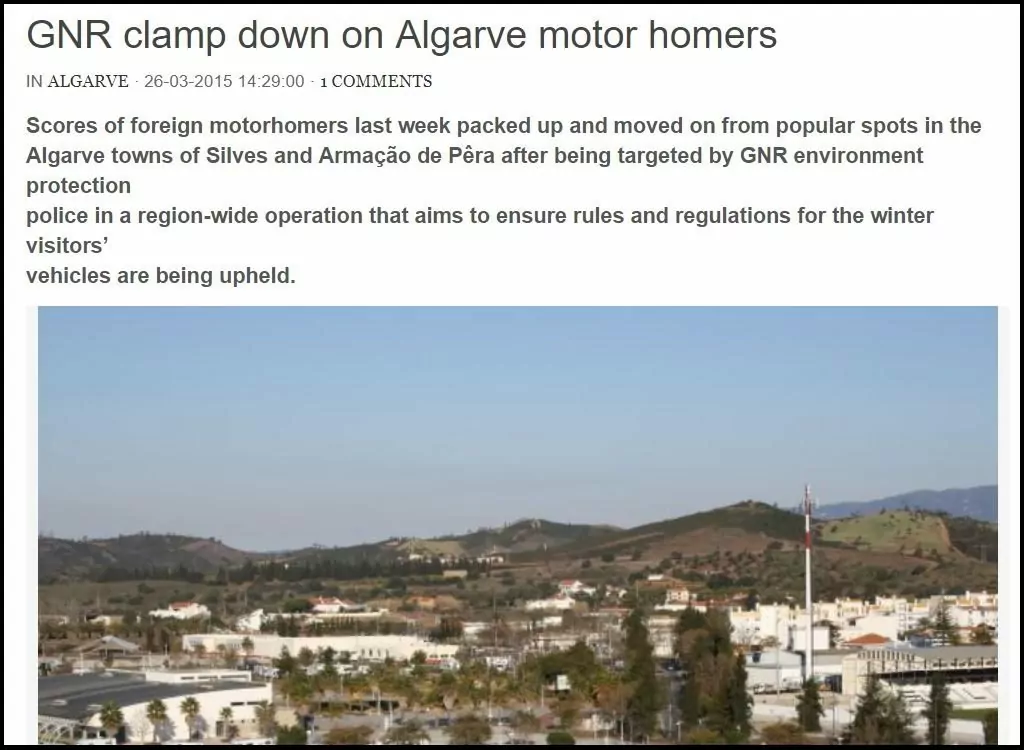

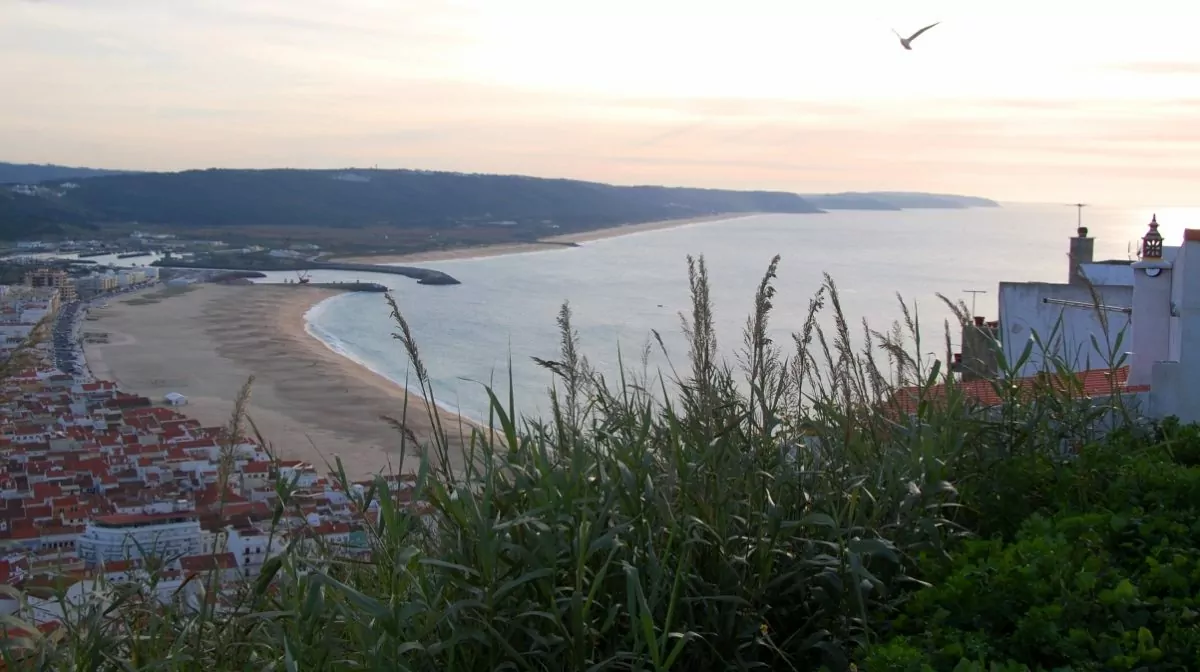
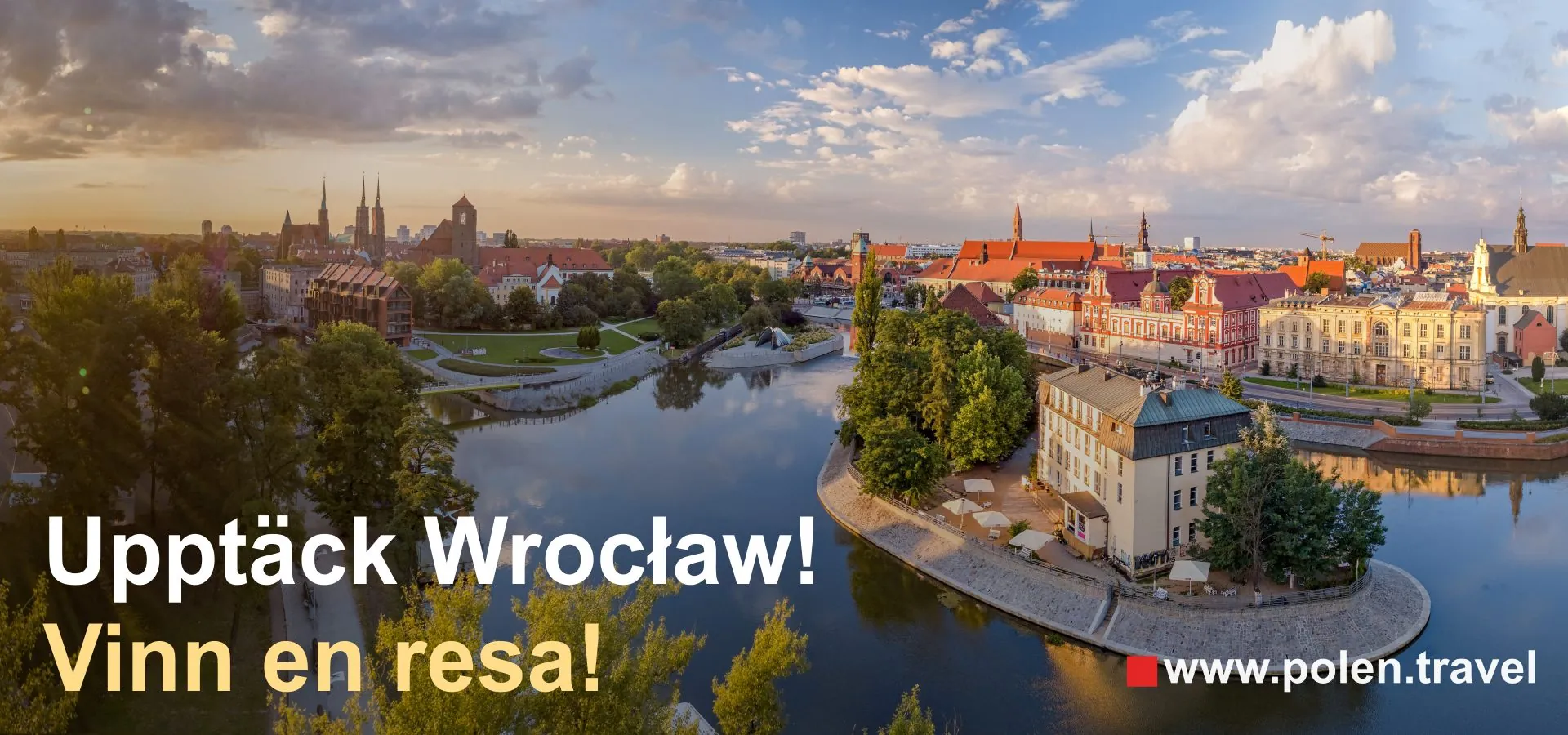






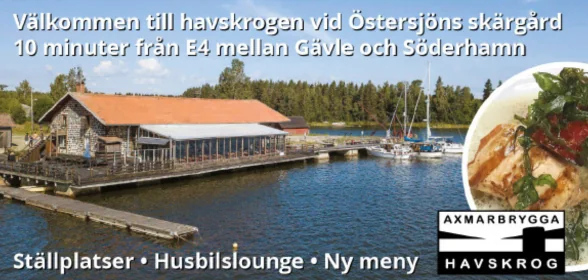
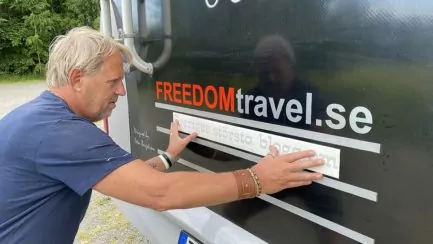
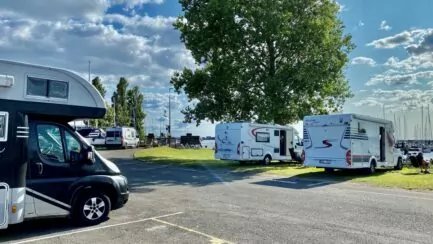
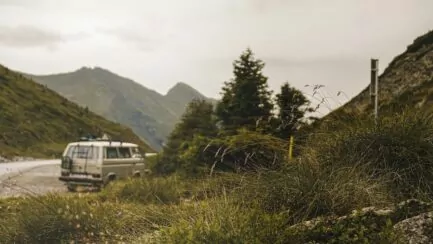
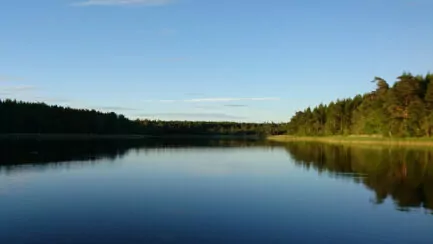
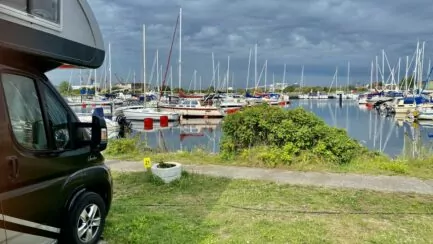
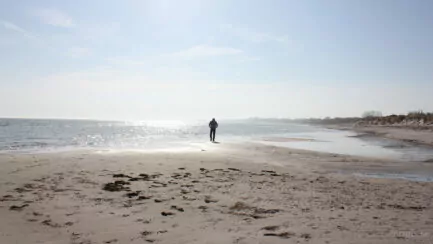



BP says:
Here I hardly need to write that I agree completely! The strange thing is - something I have never understood - that those with expensive motorhomes/cars/other vehicles are the ones who are most stingy and break the rules. Is it because they have to pay off their debts or do they think they can behave anyway?
It's a shame, because they understand for everyone else who does the right thing.
29 March 2015 - 13:44
Husbilen Helge says:
Yes, I fully agree with you and the previous commentator. Where are we going with pollution? Sad that all motorhomes will suffer for the unfair exploitation of our wonderful world by a few.
29 March 2015 - 15:37
conny andersson says:
Great article and here we all have to take great responsibility!
The more a freedom is abused, the more it will naturally be restricted.
I myself have stayed at a campsite in Rouqetas de Mar and seen how both large and small motorhomes have camped by the hundreds by the sea, emptying both black and grey water into the storm water drains.
Do you do that at home too...don't think so....
Sheer stinginess that will of course restrict the freedom of free camping.
29 March 2015 - 15:58
anita says:
Wow, yes, I really agree! Here in Crete, as far as I know, there are not so many people who campervan but I can really imagine what the locals would think about it! At our dear park and beach -Agia Apostoli- where there is a large car park, so far only the Roma with their small buses are sometimes there but I can imagine that it would be the perfect place for free campers and we would not like that.
29 March 2015 - 16:17
Lars Permeln says:
I think it is very good that you are addressing this abuse of freedom which will certainly have a negative impact on motorhome tourism. I find it difficult to understand that there are motorhome drivers who do not realise that you should not litter and empty your tanks in the wrong places when visiting another country.
29 March 2015 - 16:20
Anders och Birgitta says:
So heavenly well written, agree completely, we usually call it "cheap camping" but then we have been answered.
29 March 2015 - 18:05
Frankie & Co says:
I agree. Unfortunately, I think I experience the same here in Sweden - you get both sad and angry and understand where the anger against motorhome drivers comes from - how difficult can it be, really, to behave I wonder who takes such things for granted.
29 March 2015 - 18:13
Matts Torebring says:
Great post, but one that didn't really need to be written.
Why do we have a customer who buys 200 litter pickers? Why are entire associations organised to pick up litter on our roads? Every sensible person should be able to take responsibility for themselves, but there is no sense.
We motorhome owners, usually nature-loving people, should understand better, but here, too, there is no sense left. I'm sorry, but I get annoyed, to say the least. At the nice free parking space at the Great Belt Bridge in Denmark, a Swedish motorhome had parked along the cycle path, because there was asphalt there. I was almost boiling with anger, but I didn't dare to point it out, I didn't want a knife in my stomach after being reprimanded. Where are we going?
29 March 2015 - 18:54
Deciree says:
It's sad that it's like this, isn't it? It only takes one person to ruin it...for everyone else. Sad ... but there are always bad eggs. Hugs
29 March 2015 - 19:18
Åsa says:
Very well written!
29 March 2015 - 19:27
Kjell says:
Agreed. I have written several posts about this problem. There are more and more prohibition signs in Sweden against motorhomes. Where people have been camping in car parks, quays and harbours. Many hardly know the difference between detached, pitches or campsites. Instead, they behave as if they were on a campsite. I have been camping for over 20 years, and have found freedom in motorhome life. To be able to go when I want, stop in the middle of a city or harbour, rest a little or maybe spend the night:) without the grill, furniture, windbreaks, awnings and so on, emptying the toilet in a well, and living again. I am afraid that we will lose this freedom.
Wish that more and more pitches will be authorised. I think this is one of the saviours of motorhome life.
29 March 2015 - 19:33
Katarina Wohlfart says:
Really, is it that common? I didn't actually know...
29 March 2015 - 19:33
JoY says:
This behaviour of some people is anything but good. And of course we, all motorhome drivers, will soon be pulled over the same edge.
Remember once in Italy, an Italian took his toiletry kit, which he covered with plastic, on a small trailer and went away, was soon back and put it in again!!! Now we did not know the language, otherwise we would have asked: where, he had emptied?
Toughening up and perhaps being more forthright and questioning when we see what is happening around us in the caravan parks and free camping.
Hugs
29 March 2015 - 20:10
Lennart says:
Agreed!
We saw many "rotten eggs" during the last winters!
Live well!
29 March 2015 - 20:31
admin says:
BP, yes we are surprised that such expensive motorhomes feel that they have to stay free all season... Do they have such large debts because of the car or are they just stingy?
The motorhome Helge, it's sad because it affects all motorhome drivers, even those who "behave".
Conny, thank you for your comment and for liking the post. Interesting that you recognise this from Roquetas de Mar!
Anita, we have not been to Greece, either with or without a motorhome. But as you think, most people living in a country probably think that way!
Lars, thanks for the support! We think it's sad, you don't want to be embarrassed as a motorhome driver!
Anders and Birgitta, cheap camping was a good expression!
Frankie & Co, I'm sure it exists in Sweden too unfortunately, although we have seen it on a larger scale here.
Matts Torebring, isn't it strange that people behave like that? It gives us motorhome drivers a bad reputation. Not fun!
Deciree, that's true. Unfortunately, I think our opportunities as caravanners will be reduced over time.
Åsa, thank you!
Kjell, good that more people are writing about this! We are also afraid that we will lose these freedoms, because people behave the way they do.
Katarina, yes...
JoY, maybe you should question more! I am also bad at it, it feels difficult. But a polite question might also provoke reflection?
29 March 2015 - 20:33
Nils-Åke Hansson says:
Well written. Sad to say, we see the same thing here at home. Of course we all get pulled over the same edge.
Nisse
29 March 2015 - 23:25
Isabel says:
Well written! Here in NZ they have really acted to prevent irresponsible camping and preserve the beautiful environment, I hope they follow the same path in Europe even though it is sad that it is needed.
Take care!
29 March 2015 - 23:38
Marina says:
It is certainly tragic when the system is utilised in such a way that it destroys so many people! and it understands so much for those who actually behave!
30 March 2015 - 4:30
Rkuth i Virginia says:
I know that many, many people like caravans.
Nice to take the house with you, but, unfortunately, there is no doubt about it,
that caravans spoil nature. Especially when they
are lined up on beautiful beaches.
Definitely no eye candy!
30 March 2015 - 5:35
Steve says:
Freedom with responsibility is the name of the game.
30 March 2015 - 6:19
admin says:
Nils-Åke, I'm sorry you see the same thing at home. Yes, unfortunately it strikes back at everyone ...
Isabel, I don't know what has happened in NZ recently, but even when we were there almost 10 years ago it was a very good motorhome country. Emptying points everywhere!
Marina, people like to exploit to the limit...
Ruth, if they are right on the beach I can agree that they spoil the view. However, most proper caravan sites are some distance away and often surrounded by walls or greenery, so I don't think it affects the appearance. It's mostly motorhomes here though, caravans are less common and mostly on campsites.
😉
Steve, not everyone is so good at it unfortunately...
30 March 2015 - 7:37
Lars Andersson says:
Hello!
It is deplorable that it should be like this. It must be allowed to cost a penny, to have access to empty and refill water.
It costs money to organise things so that we get service. Well done to you for sticking your neck out, those who feel they have been hit might get an idea.
Great post.
Goodbye!
Lars and Inger
30 March 2015 - 9:29
Birgitta says:
Good that you raise the issue. Free camping is very common and it seems that no one feels responsibility and gratitude to the country you are visiting. When you want to get tips on good campsites or pitches, you often get the answer that you do not need to think about it; there is plenty of free camping along the entire coastline. And for free! During our motorhome years, we have always been surprised by the stinginess of motorhome owners, to stay overnight for free 🙁 strange. Personally, we like camping as we have a dog and would like to have a patio for her (and us) but it is more difficult to get tips.
Good luck, it's apparently summer in Calpe!
30 March 2015 - 9:46
admin says:
Lars, thank you for your positive feedback. Yes, it is not surprising that it costs a bit if you want to use the service? A simple parking space with the possibility of emptying and filling tanks does not have to cost so much, but you have to be prepared to spend a little money!
Birgitta, can agree that you often get that answer! Like it's almost a bit of a sport to stand for free. I fully understand that you want to keep prices down, but you have to be able to pay a little! We like to alternate camping with pitches and sometimes free camping, depending on where we are and what we want to do.
30 March 2015 - 10:34
steel city anna says:
It's interesting that so many Swedes get so very angry at EU migrants as what to call them, free campers perhaps. If there are people who do it out of kindness with big wrecks. Wouldn't surprise me if it's the same people who grumble and then behave as described.
30 March 2015 - 16:12
Rkuth i Virginia says:
What is the difference between a caravan and a motorhome?
30 March 2015 - 17:03
solveig rhann says:
It's good that you bring up free camping. I call it free camping but cheap camping is a better word. It seems to me that many people make a sport of not paying. Strange, especially in a country like Portugal where it is so cheap to stay on a pitch. And some boast that they have been driven away by the police ... not what I call adventurous living behaviour, just stupid!
30 March 2015 - 17:23
admin says:
Steel city Anna, interesting reflection and very good comparison!
Ruth in Virginia, a caravan is a trailer without an engine that is towed like a trailer behind a passenger car. A motorhome is a car with a body (but no trailer).
Solan, yes, we have also experienced that it is seen as a sport and something you almost brag about. Strange? Do not understand why it has become so ...? It is much better to show that you are doing the right thing!?
30 March 2015 - 17:26
Elisabeth says:
Well written. I agree with much of it. We often belong to the group of cheap campers. We use the car's facilities and don't need a campsite to shower and cook. However, we can use and pay for water and toilet emptying, sometimes at campsites, car parks or petrol stations. I believe that many localities, even in Sweden, would benefit from promoting these places through their tourist information centres. Showing consideration is the basis for all human contact, with or without a motorhome. In Norrköping we have a water and emptying point at Statoil North.
31 March 2015 - 8:06
admin says:
Elisabeth, we see nothing wrong with free camping or "cheap camping" - on the contrary, we can appreciate it ourselves many times. Maybe it can also be developed with more places to empty your tanks etc. We just don't want people to behave disrespectfully so that motorhomes are banned... The bottom line: We like free camping, but with respect for rules and nature!
22 August 2015 - 22:52
Anonymous says:
Several of those who freecamp say in all seriousness that "I do as I want" and then they should not even have a motorhome! Hard to read what is sanitary and stormwater wells, puts out dog cages, awnings and chair and table they also have! Stir sharpening!
23 August 2015 - 14:04